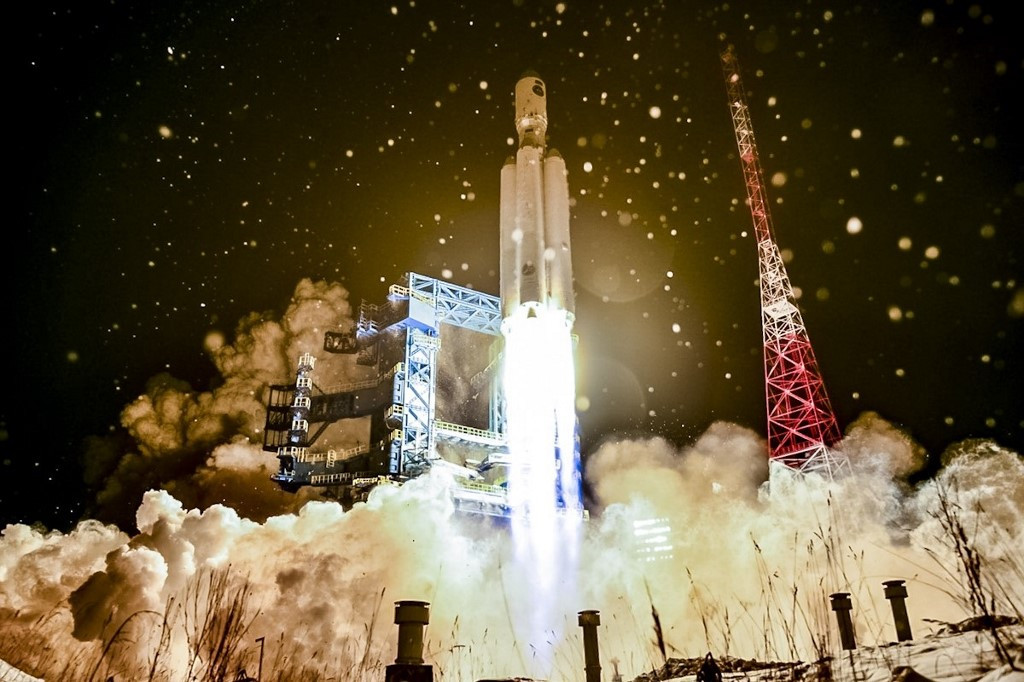Popular Reads
Top Results
Can't find what you're looking for?
View all search resultsPopular Reads
Top Results
Can't find what you're looking for?
View all search resultsRussia stages 'successful' second launch of new rocket
Change text size
Gift Premium Articles
to Anyone
R
ussia on Monday conducted a second launch of its new heavy-class Angara rocket -- the first developed after the fall of the Soviet Union -- nearly six years after its maiden voyage.
Space agency Roscosmos announced that the next-generation Angara-A5 rocket had been successfully launched with a mock payload from Plesetsk in northern Russia at 0550 GMT.
Twelve minutes and 28 seconds after the launch, "the orbital block consisting of the Breeze-M upper stage and the spacecraft's cargo mockup separated from the third stage of the carrier", Roscosmos said in a statement.
Agency head Dmitry Rogozin welcomed the news on Twitter, posting a picture of the rocket and writing: "She flies, damn it!"
Она летает, черт возьми!!! pic.twitter.com/nVAwwXZ93x
— РОГОЗИН (@Rogozin) December 14, 2020
The only other launch of the heavy-class Angara rocket took place in late December 2014, while a test of a lighter class version of the rocket was conducted in July that year.
The Angara rockets -- named after a Siberian river flowing out of Lake Baikal -- are the first new family of launchers to be built after the collapse of the Soviet Union.
Read also: Russia wants to return to Venus, build reusable rocket
They are designed to replace the Proton rockets that date back to the 1960s and have suffered a series of embarrassing failures in recent years.
President Vladimir Putin hopes the new launchers will revive Russia's space industry and reduce reliance on other former Soviet countries.
Officials say the heavy-class Angara rocket is more environmentally friendly than its predecessors because it is fueled by oxygen and kerosene rather than hugely toxic heptyl.
The Russian space program sent the first man into space in 1961 and launched the first satellite four years earlier.
But since the collapse of the USSR in 1991, it has been plagued by corruption scandals and a series of other setbacks, losing expensive spacecraft and satellites in recent years.











